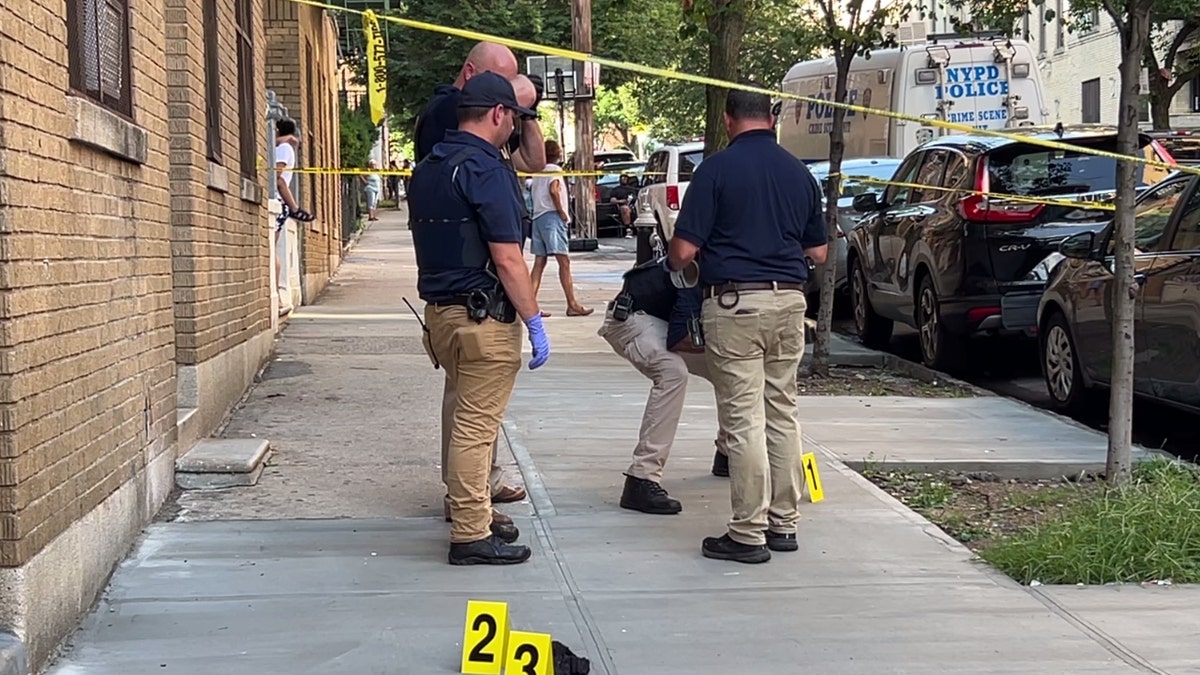NYC bail reform leads to 500 arrests of 10 criminals
Former Deputy Assistant Attorney General John Yoo and Democratic strategist Kevin Walling discuss the recently learned ramifications of NYC’s bail reform on arrests on ‘Fox News @ Night.’
The NYPD has released a list of its 10 "Worst of the Worst" recidivists – including some with more than 95 arrests on record – as the department grapples with bail reform that it says stymies its efforts to make New York City safer.
The New York Police Department (NYPD) released information regarding 10 recidivists whom it identifies as "notable high volume offender." Topping the list is someone who was arrested 101 times – 88 since bail reform was enacted in 2020, the police department said.
Just this week, the NYPD and Mayor Eric Adams slammed bail reform laws as "insane" and "dangerous" amid an increase in arrests and a series of high-profile attacks on law enforcement and the public.
"They say the definition of insanity is to do the same thing repeatedly, but expect different results," Adams told reporters. "Our criminal justice system is insane. It is dangerous, it's harmful, and it's destroying the fabric of our city."
The department did not name each person, but detailed his or her career in crime. Details for the NYPD’s top five recidivists are below.
RECIDIVIST #1
"Recidivist #1," who boasts 101 arrests, has been convicted 15 times, including three for felonies, police said. Two of those convictions were allegedly for violent felonies.
They failed to appear in court "at least 14 times," police said.
"Recidivist #1 was arrested for petty and grand larceny 74 times, all in Manhattan, the department said.
RECIDIVIST #2
The person with the second-highest number of arrests – "Recidivist #2" – boasts 96 arrests, including 67 since bail reform was enacted in 2020, police said.
They have been convicted a staggering 44 times, garnering the nickname of "predicate felon" from the police department. They have failed to show up for their court appearances 26 times, police said.

NYPD officers examine the scene of the stabbing on Decatur Ave. in the Bronx. (Peter Gerber)
Probation was revoked three times.
RECIDIVIST #3
The No. 3 offender considered has been busted 58 times – all but three were after bail reform was enacted in 2020, police said.
MMA FIGHTER WITNESSES NEW YORK CITY ASSAULT, IMMEDIATELY LEAPS INTO ACTION AND TAKES DOWN SUSPECT
They were convicted 4 times, all of which were misdemeanors, and currently has 18 open cases for commercial retail theft, police said.
RECIDIVIST #4
"Recidivist #4" boasts 62 career arrests, including 59 since bail reform in 2020, police said. They have allegedly been convicted 22 times, and have failed to show up for court 21 times.
Twenty of their convictions were for misdemeanors, police said. The person currently has seven open cases, cops said.
RECIDIVIST #5
The fifth repeat offender to make the NYPD’s list has been arrested 23 times – all of which were reported from June 2022 to present day, police said.
Fifteen of their arrests were allegedly for burglary.
2020 BAIL REFORM LAW
The 2020 bail reform law eliminated cash bail options for most nonviolent crimes and misdemeanors, with many judges instead turning to supervised release programs.
Supervised release, known officially as "non-monetary release" was established by Adams’ predecessor, Bill de Blasio, in 2016. De Blasio’s administration lauded the program as having "a proven track record of getting the vast majority of participants back to court and providing connections to vital pre-trial services."
The city program allows for arrested individuals who are flight-risks to be released under community supervision. According to New York City’s Mayor’s Office of Criminal Justice (MOCJ), one of its main purposes was to "ensure a person’s return to court."
CLICK HERE TO GET THE FOX NEWS APP
The supervised release program was expanded just before the new law took effect, scrapping all eligibility requirements which would have previously prevented a judge from freeing certain crime offenders on supervised release. In turn, those accused of violent felonies were eligible for supervised release consideration.
In January, statistics released by New York State Unified Court System showed 23% of accused criminal offenders were rearrested on felony charges from January 2020 to June 2021. Meanwhile, 41% of offenders were rearrested on any kinds of criminal charges, whether felony or misdemeanor, statistics show.





